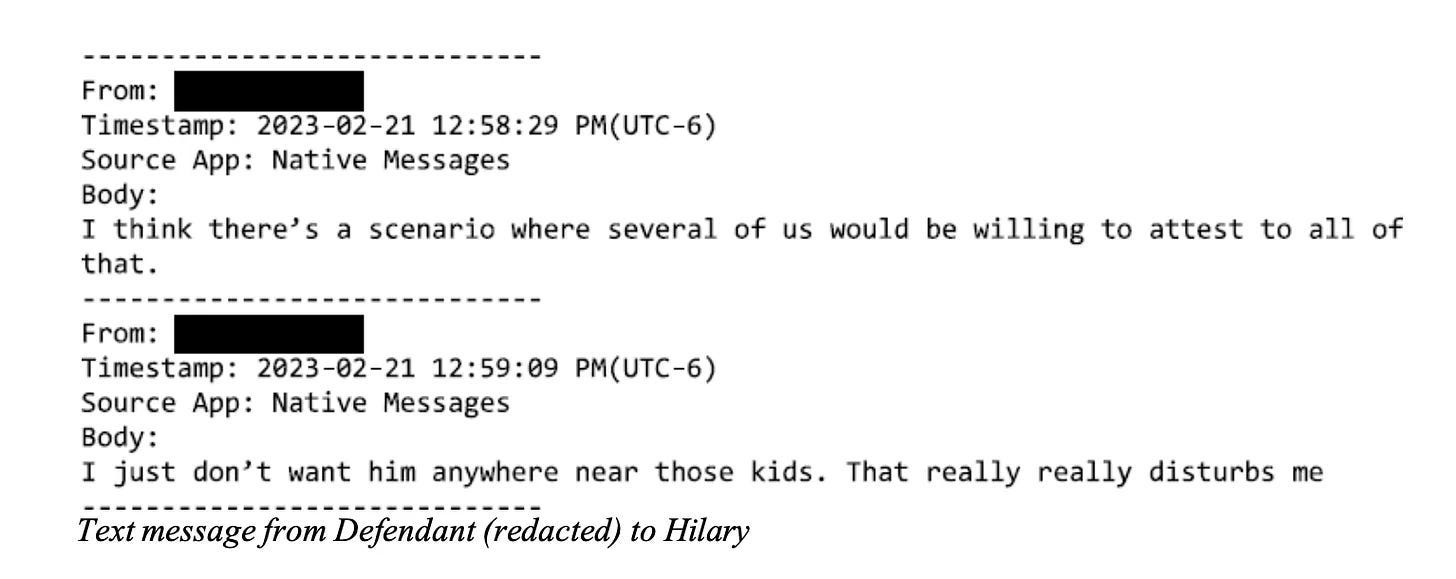Total Victory in the Steven Crowder Case
Crowder agreed to pay up and rescind illegal contract clauses for all employees.
The Steven Crowder legal saga (see I, II, III) has finally come to an end. After filing and then withdrawing one lawsuit, filing and then losing another, and facing unfair labor practice (ULP) charges at the National Labor Relations Board (NLRB), Crowder opted to settle the case by paying an undisclosed sum of money to his former producer, Jared Mittelo, and rescinding all non-disparagement and confidentiality clauses in the employment and severance agreements for all his employees.
For those who have not been following this story, what follows is a brief timeline of the legal battle that led to this settlement:
October 2023: Crowder began pursuing a variety of frivolous legal actions against Jared in Texas state court, including filing a Rule 202 petition, which illegally sought to use the tools of judicial discovery to obtain information about protected activities, and filing an illegal lawsuit seeking to enforce an illegal non-disparagement clause.
April 2024: Acting as Jared’s legal representative, I filed a ULP charge against Crowder in the Atlanta region of the NLRB alleging that Crowder maintains employment and severance agreements with illegal non-disparagement and confidentiality clauses and that he filed an illegal lawsuit seeking to enforce an illegal non-disparagement clause.
May/June 2024: Crowder voluntarily dismissed the illegal lawsuit that sought to enforce the illegal non-disparagement clause and filed a defamation suit against Jared for sending the following text messages to Crowder’s ex-wife:
The strategy appeared to rely on the assumption that a defamation lawsuit, grounded in common law rather than a contractual breach, would sidestep the issues encountered with the NLRB.
June 2024: I filed an amended ULP charge at the NLRB alleging that Crowder had now filed a baseless and retaliatory defamation lawsuit against Jared, which is also a violation of the National Labor Relations Act.
October 2024: The Texas district court judge presiding over the defamation lawsuit granted Jared’s motion to dismiss that case on the grounds that the lawsuit violated Texas’s anti-SLAPP statute. The judge ordered Crowder to reimburse Jared for $43,037 of legal expenses and pay an additional $15,000 in sanctions in order to deter Crowder from filing any similar actions in the future. The judge also stipulated that Crowder would be required to pay an additional $35,750 to Jared if Crowder appealed the decision and then lost the appeal.
December 2024: Crowder and Jared reached the settlement agreement above in which Crowder agreed to pay Jared an undisclosed sum and rescind the non-disparagement and confidentiality clauses in all of his employment and severance agreements. In exchange, Jared agreed to withdraw his NLRB charges.
The agreement contains a confidentiality clause that forbids Jared from revealing the amount of money Crowder paid him. The agreement also states that the settlement payment “represents attorneys’ fees and expenses incurred by [Jared] in defending against [Crowder’s] legal actions” and that the parties “may publicly disclose that the claims were settled and reference any information that is in the public record.”
One thing in the public record is that a Texas court already ordered Crowder to pay Jared $58,037 for filing the frivolous defamation lawsuit. Another thing in the public record is that the ULP charges Jared withdrew as part of the settlement would have, if successful, resulted in an NLRB order requiring Crowder to reimburse Jared for the legal expenses he incurred defending himself against the earlier Rule 202 petition and non-disparagement lawsuit as well.
Overall, this was a complete victory for Jared. He successfully defended himself against all of Crowder’s legal actions, secured financial compensation, and forced Crowder to rescind his non-disparagement and confidentiality clauses for all employees. Crowder, on the other hand, walked away with nothing.
This was also a good illustration of one of the offbeat ways that federal labor law can be used to protect former and current employees. It was the filing of the unfair labor practice charge against the non-disparagement lawsuit that led Crowder to voluntarily dismiss that lawsuit and pursue the much harder path of a defamation lawsuit, which Crowder lost and for which he received sanctions. Absent that, Jared would have likely been stuck defending himself from the non-disparagement lawsuit, which he may have won, but only after spending six figures in non-reimbursable legal expenses.


